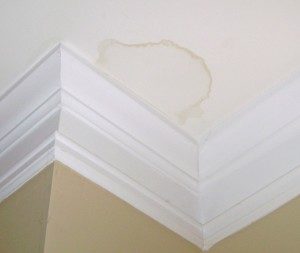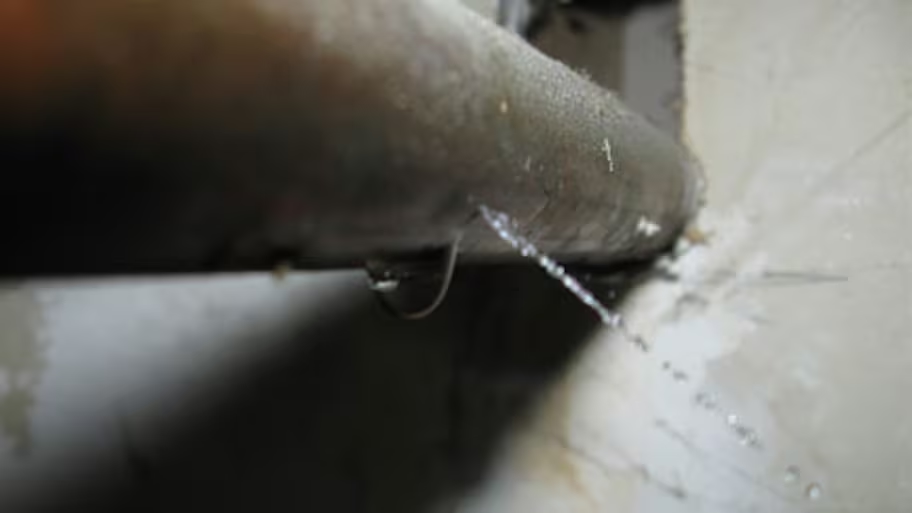The Home's Primary Frequent Leak Triggers: Examination
The Home's Primary Frequent Leak Triggers: Examination
Blog Article
The article down below relating to How to detect water leaks in your home is really informative. Read on and draw your own personal results.

Leakages not just create waste of water yet can additionally create unneeded damages to your residence and also advertise undesirable organic growth. Water leakages could go unnoticed because most of the pipework in our residence is hidden. By comprehending and looking for everyday scenarios that trigger leaks, you can secure your house from future leakages as well as unneeded damage. Today, we will certainly check out six leakage causes that might be causing your pipelines to trickle.
Trespassing roots
Many water leaks begin outside the house as opposed to inside it. If you observe a sudden decline in water pressure, claim in your tap, take some time to go out as well as analyze your yard. You may notice wet spots or sinkholes in your yard, and that could mean that tree roots are attacking water lines creating water to seep out. You can have your plumber check for breach, specifically if you have trees or shrubs near your property.
Corroded water systems
As time goes by, your plumbing system ages and rust such as corrosion might start gnawing the pipes. This could be the source of staining or bending on your pipes. This asks for an evaluation with your plumber instantly. Take into consideration replacing the pipes considering that they are at a greater danger of rust than the more recent designs if our plumbing system is old.
Malfunctioning Pipe Joints
The factor at which your pipes attach is frequently the weakest link in the waterline. Pipe joints can wear away gradually, causing water leaks. However, the majority of pipe joints are not conveniently visible. If you have noisy pipes that make ticking or banging sounds, specifically when the warm water is activated, your pipeline joints are most likely under a lot of stress. It is a good idea to have your plumber check your system yearly.
Instant temperature level changes.
Extreme temperature level changes in our pipelines can cause them to broaden as well as get unexpectedly. This development as well as tightening may cause splits in the pipes, especially if the temperature level are below freezing. If you kept an eye on just how your plumbing functions, it would be best. The visibility of the formerly discussed circumstances frequently suggests a high threat.
Poor Water Connectors
At times, a leak can be caused by loosened hoses and pipelines that supply your appliances. In situation of a water links leakage, you may observe water running straight from the supply line or puddles around your appliances.
Blocked Drains
Blocked drains pipes might be frustrating as well as inconveniencing, but they can often end up triggering an overflow leading to break pipelines. Maintain removing any type of products that might go down your drains that can block them to avoid such hassles.
All the above are reasons for leaks however not all water leakages result from plumbing leaks; some leakages could come from roofing system leaks. All leakages should be repaired immediately to stay clear of water damages.
Leaks not just create waste of water however can likewise trigger unneeded damages to your home and also advertise undesirable natural growth. By looking and also understanding for day-to-day scenarios that cause leaks, you can protect your residence from future leaks as well as unneeded damage. Today, we will look at 6 leak causes that may be causing your pipes to drip.
At times, a leakage can be triggered by loose hoses as well as pipelines that supply your home appliances. In situation of a water connections leakage, you might see water running straight from the supply line or puddles around your devices.
Tell-Tale Signs of a Water Leak
The Sound of Running Water
If you’re hearing water running, your first step should be to check your faucets, toilet valves, and outdoor spigots. If everything if status quo, take an exact reading of your water meter and don’t use the water for a few hours. Then, take another meter reading. If there has been no change, that means water is not running (and maybe it’s time to have your hearing checked!). If the reading has changed, however, this indicates that water is indeed flowing and you most likely have a leak.
Wet or Damp Floors
You’re walking across your carpet and suddenly squish—your sock is soaked! The dog doesn’t look guilty and your child swears they didn’t spill anything. That means you’re likely looking at sewer leakage. Now, it’s easy to just soak it up with a towel and call it a day; however, this won’t stop the leak. Ignoring the problem allows moisture to build up, ultimately causing mold or mildew. Not only is this smelly, it can be very toxic and harmful to children, the elderly, pets, and those with weak immune systems. Don’t risk the health of your home and your family—call in a professional to take care of the problem.
Foul Odors
If there’s an unpleasant smell in your home and you can’t locate the source, don’t just light a candle or spray some Febreze. Funky smells are often due to mold and mildew, which spread fast under ideal conditions (optimal temperature and level of humidity). Growth begins within about 24-48 hours, and spores start to colonize in 3-12 days, becoming visible to the eye within about 18 days. If you think the odor is leak-related, get a plumber out as soon as possible to mitigate damage from rapid fungi growth (and rid your home of the foul odor).
Overgrowth in the Lawn
Unless you didn’t fertilize your lawn evenly, a lush patch of grass in a select area of your lawn, or concentrated wet spots, indicate pipe leakage which is acting as a fertilizer. Left untreated, hazardous bacteria in the underground waste will quickly turn into a messy situation, going from lush growth to lawn destruction.
Wall Cracks
Over time, even the littlest of leaks can cause cracks in the foundation of your home and compromise the entire structure. How does it happen? The leak continues hammering away at the same spot in the ground beneath your home, eventually causing it to shift slightly. Now, you’d never feel this shift, but your walls will. This can be a very dangerous situation, so if you’re seeing vertical or diagonal cracking in your walls it’s best to call a plumber right away.
https://www.expresssewer.com/blog/6-telltale-signs-of-a-water-leak-in-your-home

We hope you enjoyed reading our topic about How to Find Water Leaks. Thanks a lot for taking a few minutes to read through our posting. Sharing is caring. Helping people is fun. We truly appreciate reading our article about Most Common Causes of Leaky Pipes.
Immediate attention? Call! Report this page